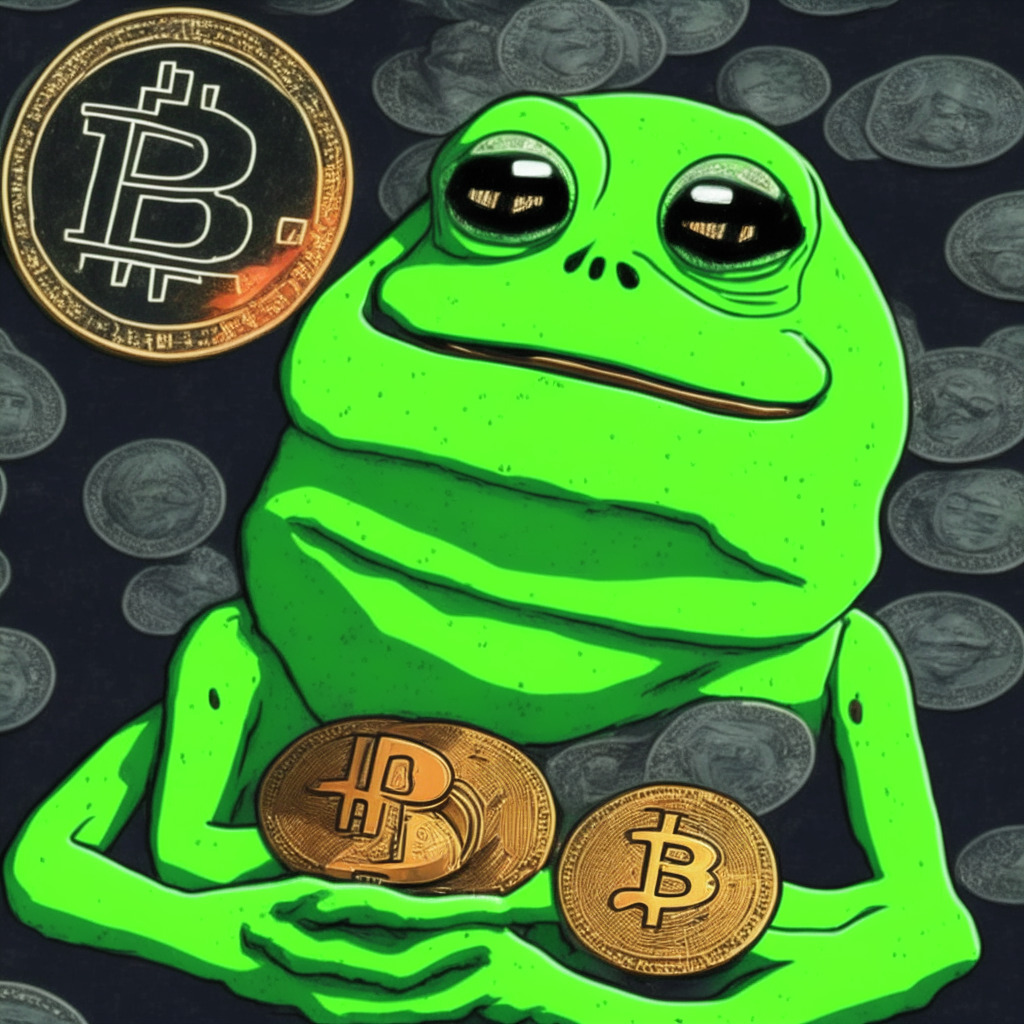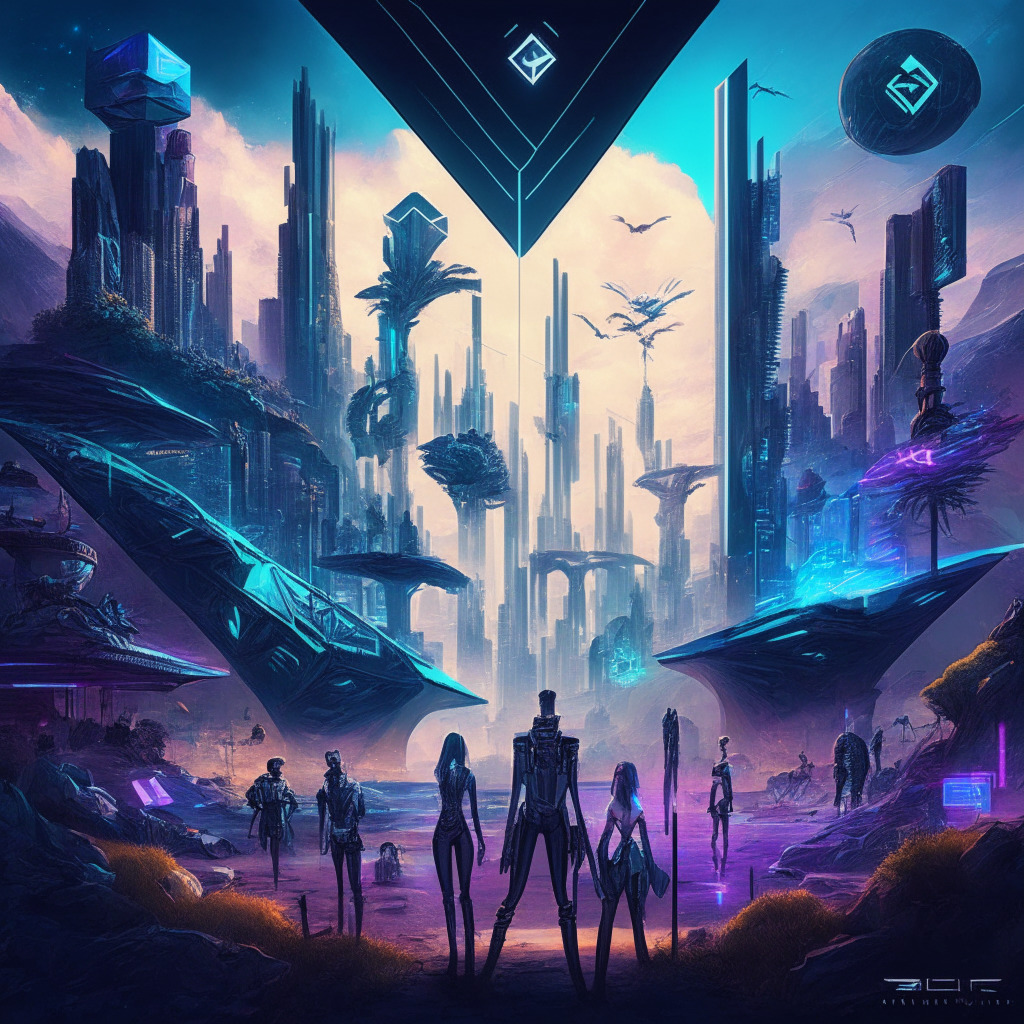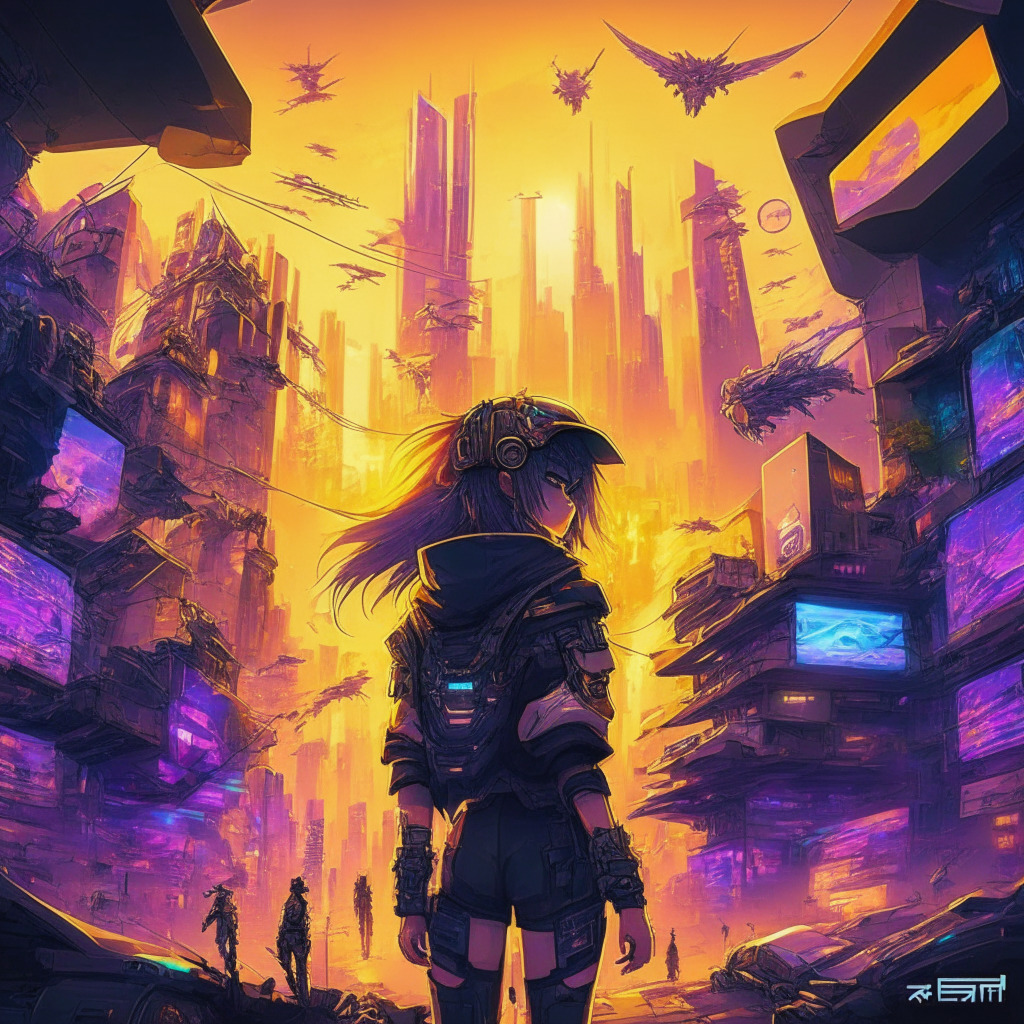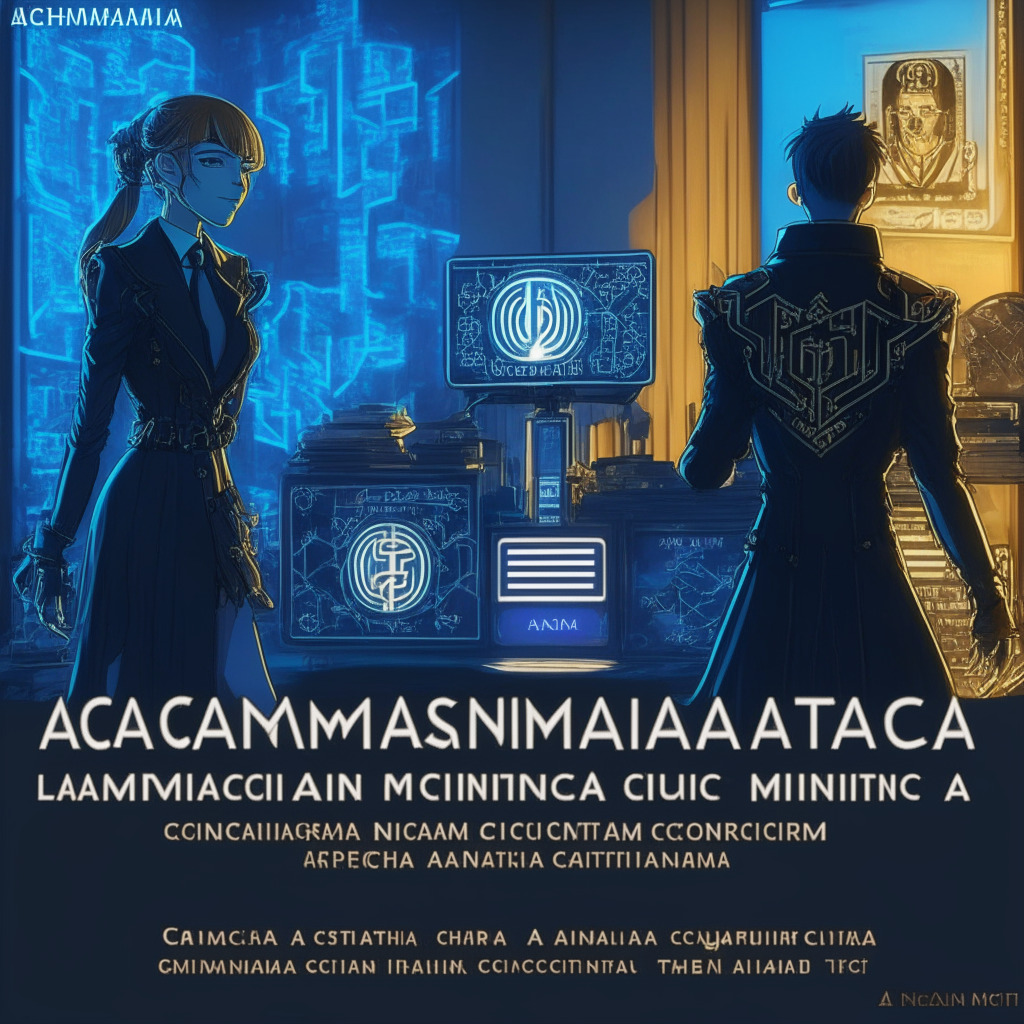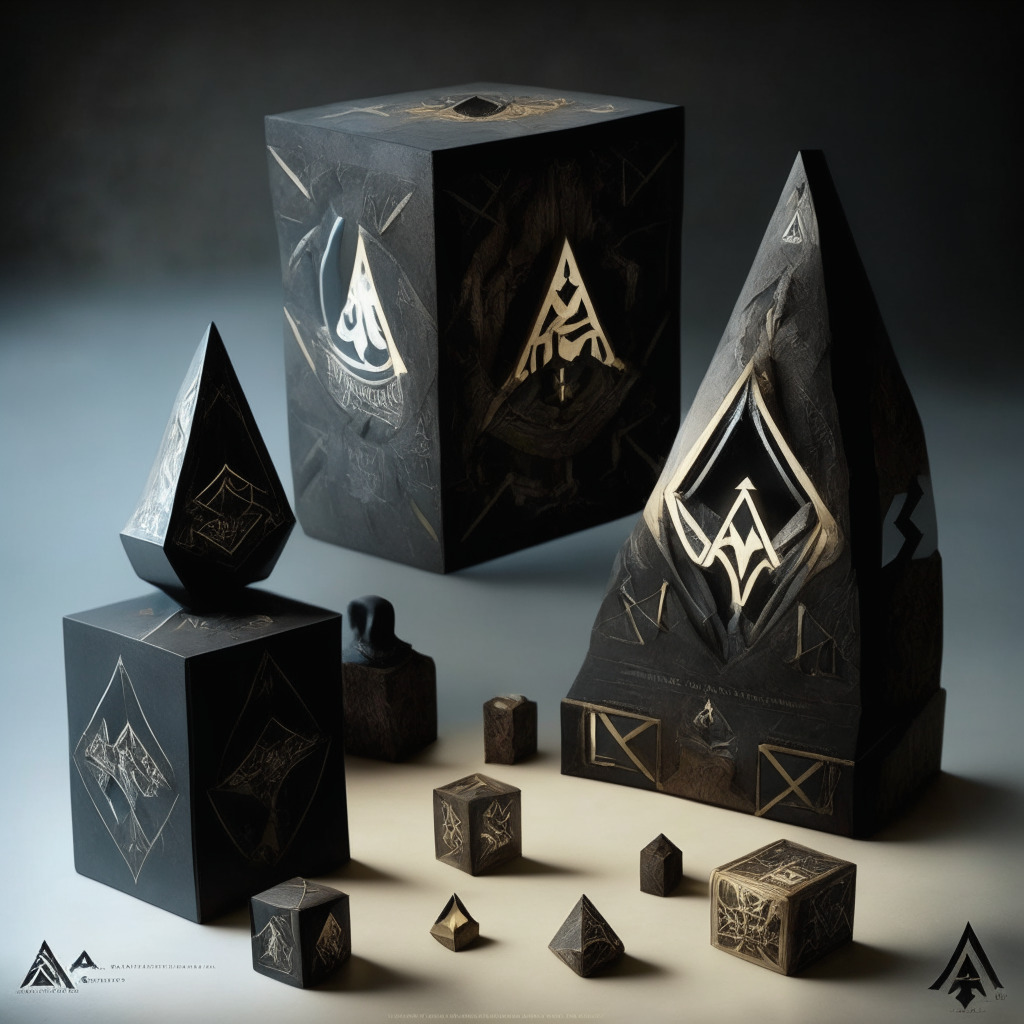“Japan’s new regulations governing stablecoins could make it a hub for the burgeoning stablecoin market. However, strict rules apply: only licensed financial institutions can issue stablecoins, must be pegged to legal tender, and guarantee at-face-value redemption.”
Search Results for: BIS
Navigating the Rocky Road to CBDC Adoption: Overcoming Obstacles and Addressing Pitfalls
Crypto researcher Fadi Aboualfa casts doubt on the efficiency of Central Bank Digital Currency (CBDC) platforms as substitutes for cash, noting their failure to address vital technical parameters. He highlights interoperability issues and warns of potential consumer trust crises in the event of a bank scandal affecting branded CBDCs.
The Future of Tokenization: CBDCs, Decentralization, and Global Monetary Landscape
The IMF and BIS published reports discussing the future of the monetary system and the potential impact of crypto and central bank digital currencies (CBDCs) on tokenization. Tokenization represents claims digitally on a programmable platform, integrating records of underlying assets with their transfer rules and logic. The reports emphasize tokenized CBDCs’ role in maintaining settlement stability and “singleness of money.”
Cryptocurrencies: Gambling or Societal Benefits? Balancing Innovation and Regulation
ECB board member Fabio Panetta argues that cryptocurrencies hold “no societal benefits” and should be treated as gambling, subject to stringent regulatory standards. He emphasizes the importance of regulating crypto-related activities, including DeFi and self-custodial wallets, while acknowledging ongoing efforts such as the new MiCA regulations.
Exploring Project Guardian: Tokenized Digital Assets and the Future of Finance
The Monetary Authority of Singapore, Bank for International Settlements, and major financial institutions collaborate on Project Guardian, which explores designing open and interoperable networks for tokenized digital assets across asset classes like wealth management, fixed income, and foreign exchange. This project raises questions on accessibility, scalability, and regulatory adaptation.
Japan’s Stablecoin Law: Opportunities, Challenges, and the Future of Crypto
Japan’s largest bank, Mitsubishi UFJ Financial Group (MUFG), is engaging in discussions with global stablecoin issuers to mint tokens on its Progmat blockchain platform, following Japan’s new stablecoin law. MUFG’s VP of Product, Tatsuya Saito, emphasized the importance of stablecoins in providing reliable assets for investors during volatile trades and how Japan could potentially become a hub for stablecoin issuance.
Digital Pound Debate: Balancing Innovation, Interoperability, and Privacy Concerns
The UK government’s proposed digital pound has received mixed reactions, with concerns around user privacy, holding limits, and integration with cryptocurrencies for future-proofing. To succeed, public trust and understanding will be crucial, as the decision and implementation may not occur until at least 2025.
Unified Ledger: Merging CBDCs and Tokenized Assets for a Financial Revolution
The future of finance could involve a unified electronic ledger merging central bank digital currencies with tokenized assets, streamlining transactions and improving global financial systems, according to a Bank for International Settlements report. Key benefits include automated smart contracts, reduced trade costs, and seamless cross-border operations.
Unified Ledger Revolution: Merging CBDCs, Tokenized Money, and Assets on One Platform
The Bank for International Settlements (BIS) proposes a unified electronic ledger to improve the global financial system by combining central bank digital currencies, tokenized money, and assets on a single platform, using blockchain and automated smart contracts. This innovation could offer novel securities settlement methods, reduce trade finance costs, and eliminate inefficiencies in cross-border transactions.
Elon Musk Labels AI Chatbot a Scam: BOB Token Value Dips & the Debate on Crypto Safety
An AI chatbot linked to the Pepe the Frog-inspired BOB Token has been removed from Twitter after Elon Musk called it a “scam crypto account.” Musk’s earlier interaction with the chatbot caused a 4,744% surge in token value, which later dipped by over 40% following the account’s suspension. This move aligns with Musk’s commitment to eliminating spam and maintaining a cleaner Twitter ecosystem.
Britcoin on the Horizon: Pros, Cons & Privacy Concerns of CBDCs Unraveled
The Bank of England advances towards launching “Britcoin,” a central bank digital currency (CBDC), following the positive findings in Project Rosalind. The experiment explored API implementation for efficient retail CBDC transactions, while addressing skepticism surrounding CBDC programmability and user privacy concerns. The final decision on a CBDC is still years away.
AI
Twitter suspended AI-bot account “Explain This Bob” after Elon Musk accused it of being a “scam crypto account.” Linked to Bob Token (BOB), the account’s suspension led to a 30% price decline. Despite disagreement over the suspension, caution is advised when investing in crypto projects, and it’s important to recognize the positive contributions of AI-powered tools and decentralized technologies.
Bank of England Inches Towards CBDC: Exploring Pros, Cons, and Privacy Concerns of Britcoin
The Bank of England and the BIS completed a yearlong project, Rosalind, exploring the practicality and potential benefits of a Central Bank Digital Currency (CBDC). Findings suggest CBDCs could expedite person-to-person payments, enable innovative financial products, and reduce fraud, paving the way for the Digital Pound, informally known as “Britcoin.”
AI Breathes New Life into Unfinished Beatles Song: A Look into Music’s Blockchain Future
Sir Paul McCartney announces the use of AI technology to extract John Lennon’s vocals from an old demo tape, allowing the completion of a “final” Beatles song to be released this year. Developed for Peter Jackson’s Beatles documentary, this AI tool successfully separates vocals from other audio elements in older recordings.
USDC Integration into Arbitrum: Exciting Possibilities and Potential Challenges
The integration of Circle Internet Financial’s stablecoin USDC into Arbitrum, a leading layer 2 scaling solution for Ethereum, offers intriguing possibilities for businesses and the crypto community. However, potential challenges posed by software bugs and token price fluctuations should be considered before embracing this rapidly-evolving blockchain innovation.
SEC vs Crypto: Sandbox COO Debates Token Regulation and Implications for the Industry
Sabastien Borget, COO of The Sandbox, addressed concerns over the SEC’s enforcement in the crypto world, following lawsuits against Binance and Coinbase involving unregistered securities. Borget disagrees with the SEC’s categorization, asserting it doesn’t affect The Sandbox’s daily operations.
GTA 6 Rumors: Crypto, NFTs, and the Future of Blockchain Gaming
Rumors suggest that Grand Theft Auto VI (GTA 6) may incorporate cryptocurrency and non-fungible tokens (NFTs) as a play-to-earn game, with in-game items as NFTs. However, GTA creators Rockstar Games have not confirmed these claims, and no solid evidence supports the rumors.
Japan’s MUFG Unveils Progmat Coin: A New Era for Bank-Backed Stablecoins & Cross-Chain Solutions
Japan’s MUFG unveils Progmat Coin, a stablecoin issuance platform supporting local bank-backed stablecoins on multiple public blockchains. The platform aims to provide a universal digital asset payment method for stablecoins, cryptocurrencies, and a Japanese CBDC while addressing potential security concerns.
Japanese Banks Embrace Yen-Pegged Stablecoins: Analyzing Opportunities and Challenges
MUFG’s Progmat Coin platform enables Japanese banks to launch Yen-pegged stablecoins on multiple public blockchains such as Ethereum, Polygon, Avalanche, and Cosmos. As new regulations take effect, banks are exploring or launching stablecoins, potentially advancing mainstream crypto asset acceptance.
Bridging Web2 and Web3 Gaming: Outer Ring MMO and the Future of Crypto Integration
The Web3 game Outer Ring MMO, developed by Maniac Panda Games, aims to bridge the gap between mainstream gaming and blockchain technology. Integrating familiar gameplay elements and a user-centric economy, it allows players to create, trade, and monetize in-game assets as NFTs, reaching a broader audience in the Web3 gaming space.
Japanese Stablecoins: Navigating New Payment Services Act, Pros and Cons
The revision of the Payment Services Act allows Japanese firms to issue stablecoins, aiming to improve efficiency in cross-border payments, international remittance, and online shopping. The legislation also bolsters anti-money laundering efforts and differentiates between crypto assets and stablecoins. This development could significantly impact the $7.2 billion B2B payments market and foster innovation in financial institutions.
Asian Game Studios Lead the Charge in Blockchain Gaming: Opportunities & Challenges
Major game studios are embracing blockchain networks, cryptocurrency, and NFTs in response to the gaming world’s shift to Web3 technologies. Asian companies like Square Enix, Nexon, and Krafton lead the way, while skepticism and resistance among gamers pose challenges to integration.
Reddit NFTs Approach 10 Million Holders: Real Growth or Bot Influence?
Reddit is nearing 10 million NFT avatar holders, experiencing significant growth in 2023 with an 80% increase. The platform’s NFT market capitalization is $38.4 million. However, concerns regarding bot activity influencing growth warrant caution and require addressing to ensure future sustainable growth.
Retail CBDCs: Exploring Benefits, Challenges, and the Future of Central Bank Digital Currencies
The Bank for International Settlements (BIS) published a paper on retail central bank digital currencies (CBDCs) as central banks worldwide explore their potential. Retail CBDCs, designed for public use, could support monetary and financial stability but also face concerns including political interference, financial instability, and data privacy.
Rabbids-Themed NFT Avatars on Reddit: Gaming-Blockchain Convergence or Passing Fad?
Reddit users can now claim free Rabbids-themed NFT avatars, showcasing the continuous convergence of gaming and blockchain technology. Ubisoft and Reddit’s collaboration follows the success of Reddit’s $330 million market cap “Snoo” NFT avatars. As Ubisoft further explores digital ownership, the demand for this unique blend of technology and gaming remains uncertain.
US Secret Service Embraces Crypto: Blockchain’s Expanding Influence and Challenges Ahead
The United States Secret Service acknowledged the potential of blockchain technology in combating financial crime during a Reddit AMA, highlighting it as an “amazing opportunity” for law enforcement. Meanwhile, blockchain’s influence in various domains is growing, transforming areas like gaming franchises and shaping industries through influential figures like Elon Musk and Satoshi Nakamoto.
Tamadoge’s Web3 Gaming Leap: Embracing Innovation While Mitigating Risks
Tamadoge announces the launch of its new website, combining blockchain, smart contracts, and NFTs to offer a captivating gaming ecosystem with true digital asset ownership. However, users must be diligent in recognizing inherent risks related to emerging technologies and cybersecurity threats.
Assassin’s Creed Smart Collectibles & The Evolving NFT Market: Opportunities and Challenges
Assassin’s Creed is launching customizable “smart collectibles” featuring digital and physical components. These collectibles include a 3D-printed cube with a character figure and a Polygon-based NFT “Digital Soul” for proof of ownership. An embedded near-field communication (NFC) chip and companion app allow users to access achievements and earn rewards.
Google Bard vs. OpenAI ChatGPT: The Battle for AI Chatbot Dominance and Future Implications
Google’s AI chatbot, Bard, challenges OpenAI’s ChatGPT with upgrades introduced at the Google I/O conference. Transitioning to the PaLM 2 model and offering different versions for various applications, Bard provides improved performance in translation and coding support. Despite ChatGPT’s current adoption advantage, Bard’s free availability may attract users.
Ethereum Developer’s 10-Year Export Ban: Impact on Blockchain’s Future & Need for Regulation
Ethereum developer Virgil Griffith, serving a five-year prison sentence, receives a 10-year export privilege bar from the Department of Commerce. The decision restricts his ability as a US citizen to participate in transactions involving exported commodities, software, or technology even after his release. This emphasizes the importance of regulation in upholding the integrity of blockchain technology and preventing misuse.
LG’s Blockchain TV: Revolutionizing NFT Trading or Risky Investment? Pros & Cons Explained
South Korean tech giant LG Electronics reveals their latest patent application: a TV that allows users to buy, sell, and swap NFTs directly from their living rooms. By connecting to an NFT market server and users’ cryptocurrency wallets, LG aims to integrate NFT technology and digital art collectorship into everyday entertainment.
Blockchain Revolution: How Web3 Transforms the Travel Industry and Enhances Customer Experience
Executives from Lufthansa and Eurowings discuss the potential of travel-centric blockchain Camino Network, highlighting the benefits of decentralization and tokenization in enhancing transparency and improving customer experience. As the travel industry embraces Web3 technologies, companies explore use cases such as metaverse-inspired virtual experiences and NFT-based ticketing systems.









